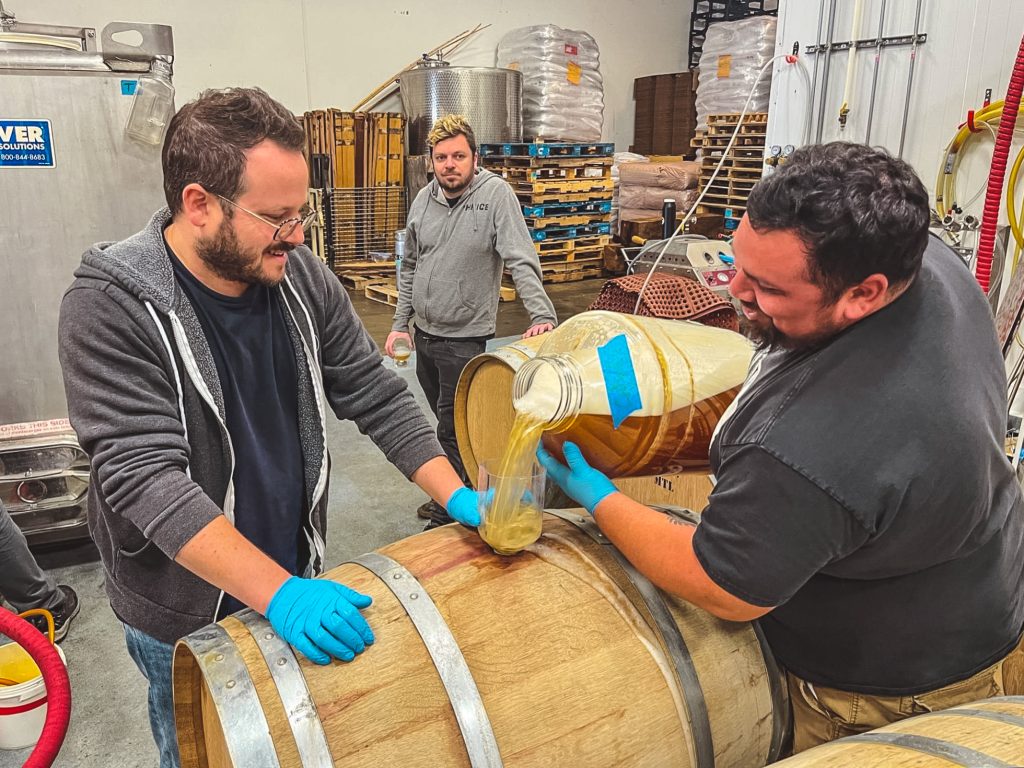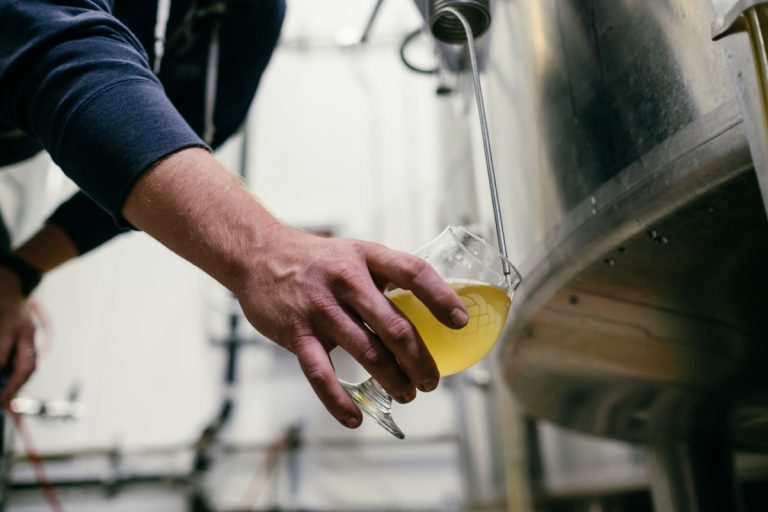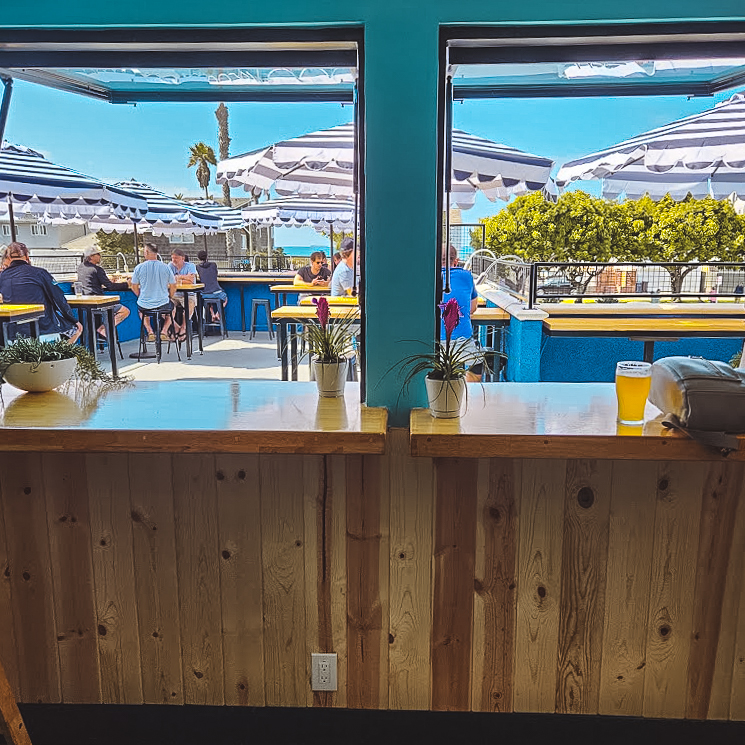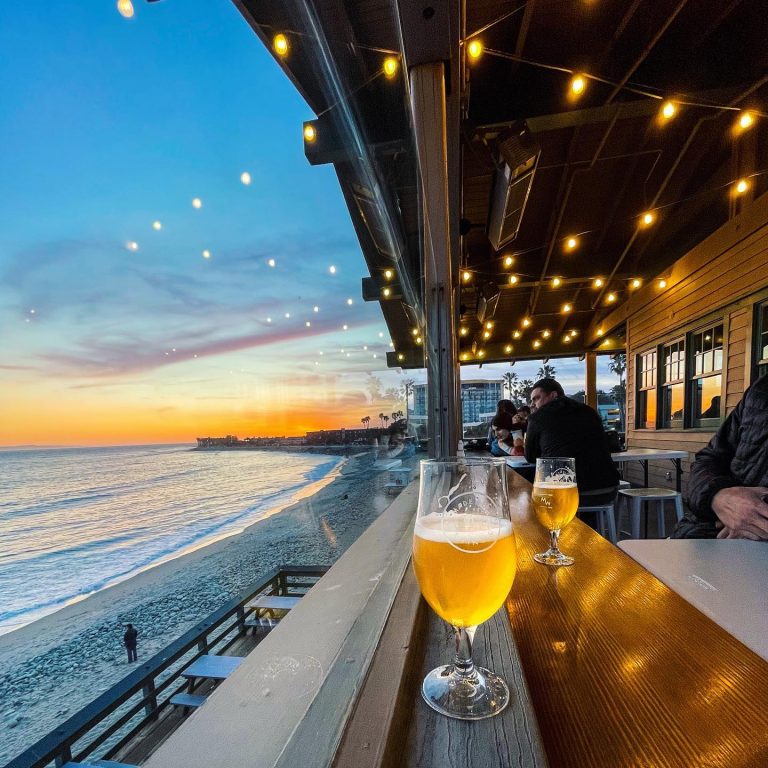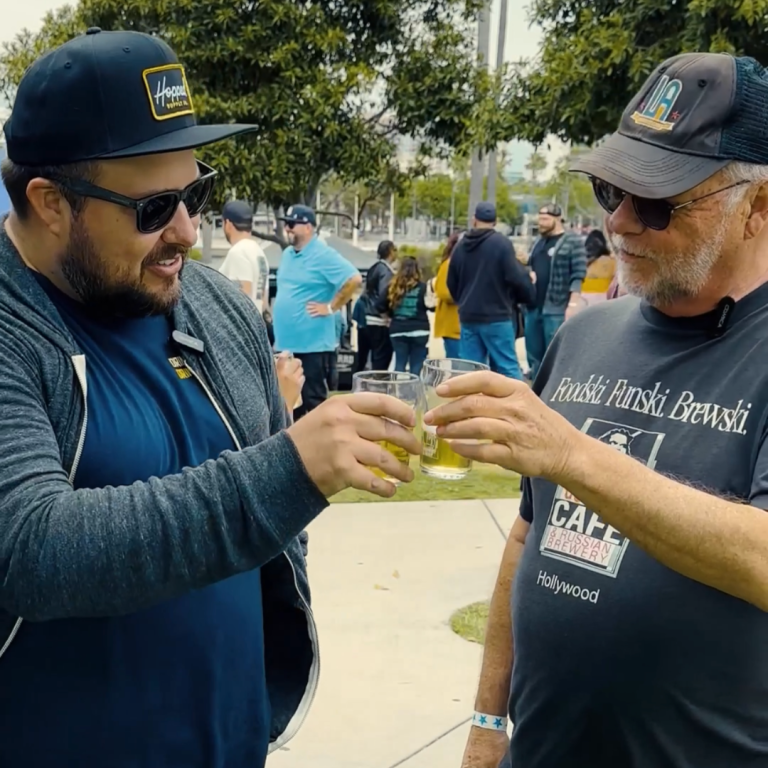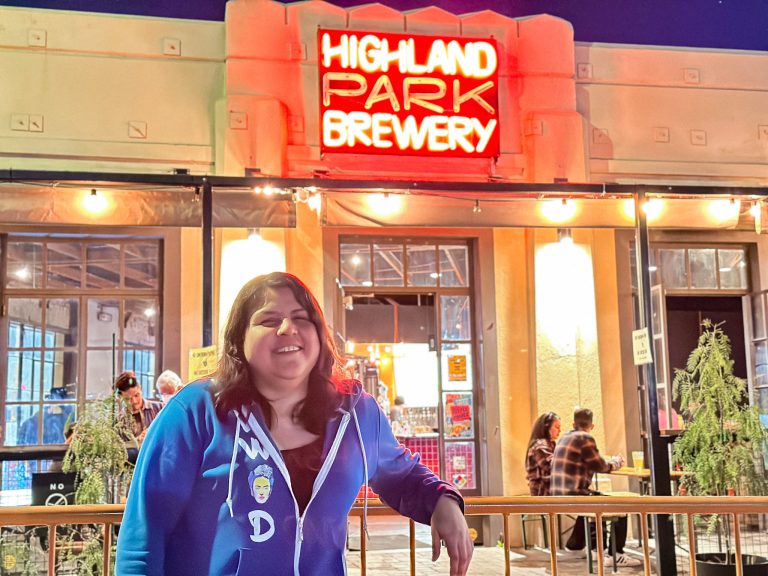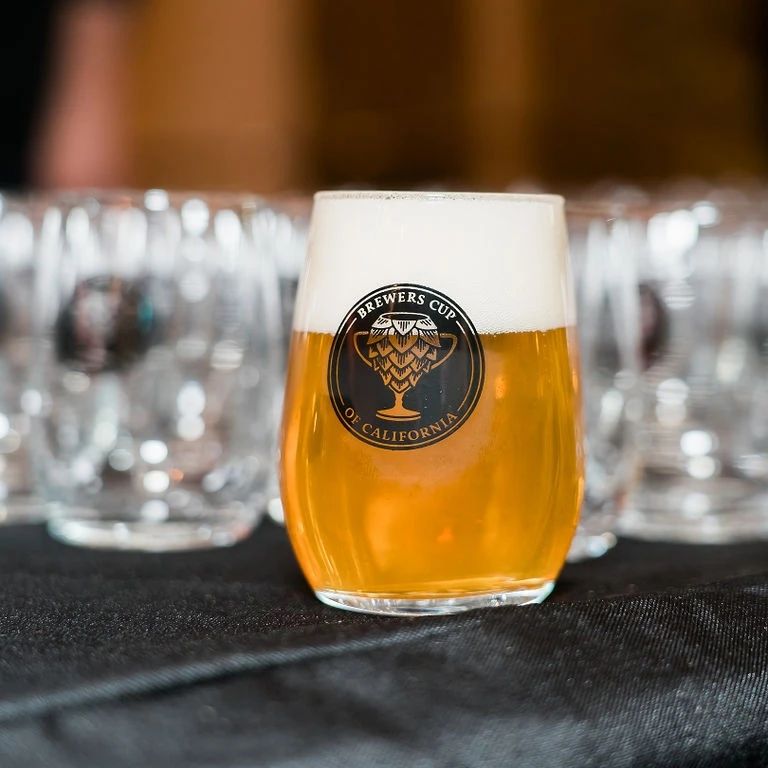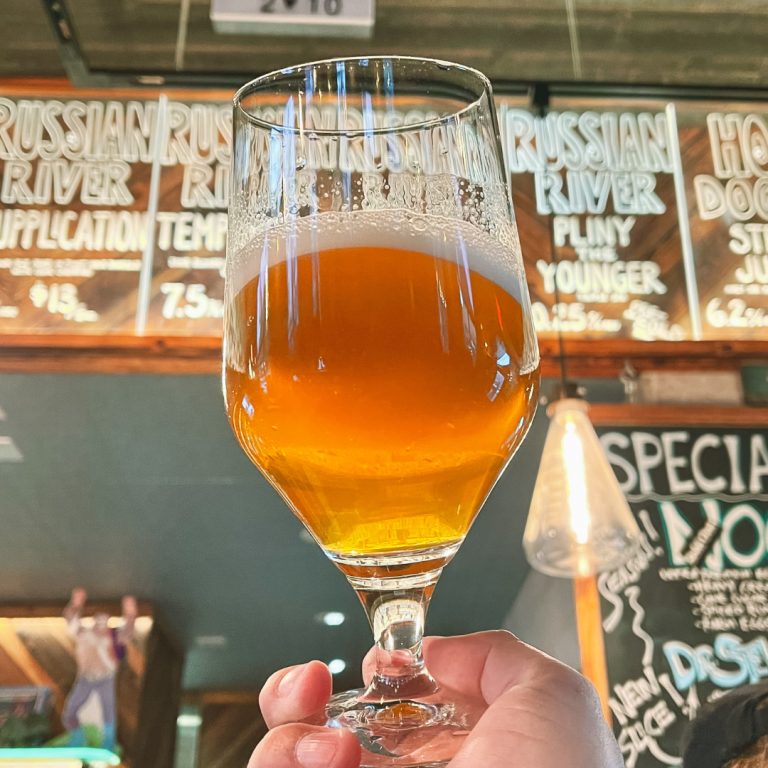It’s a new era for Cellador Ales. Seven years after first opening, the barrel-aged specialty brewery has been reborn with a new production facility, plans for a new taproom, and a new — but familiar — owner.
Alex Ourieff, the brewery’s first-ever outside hire, takes over the business, with a sharp eye on maintaining Cellador’s commitment to producing high-quality mixed fermentation and barrel-aged beers.
When the company’s original co-founders and former owners Kevin and Sara Osborne announced in June 2022 that they would be closing the business, it came as a shock for the local brewing community. The 100% oak-barrel fermented brewery had established itself as one of the best beer-makers in Southern California, separating itself through an impressive dedication to barrel-aging.
“Kevin really came to the end of the journey he wanted to have with the brand,” the new owner said of the initial closing announcement. “He never experienced Cellador as a business opportunity. For him, it was an art project. And I think that he came to a place where he had kind of done what he wanted to do with it.”
The business was at a crossroads; to continue operating, they would need to double down and invest money in expansion. The original owners were not prepared to do this, but Alex was.
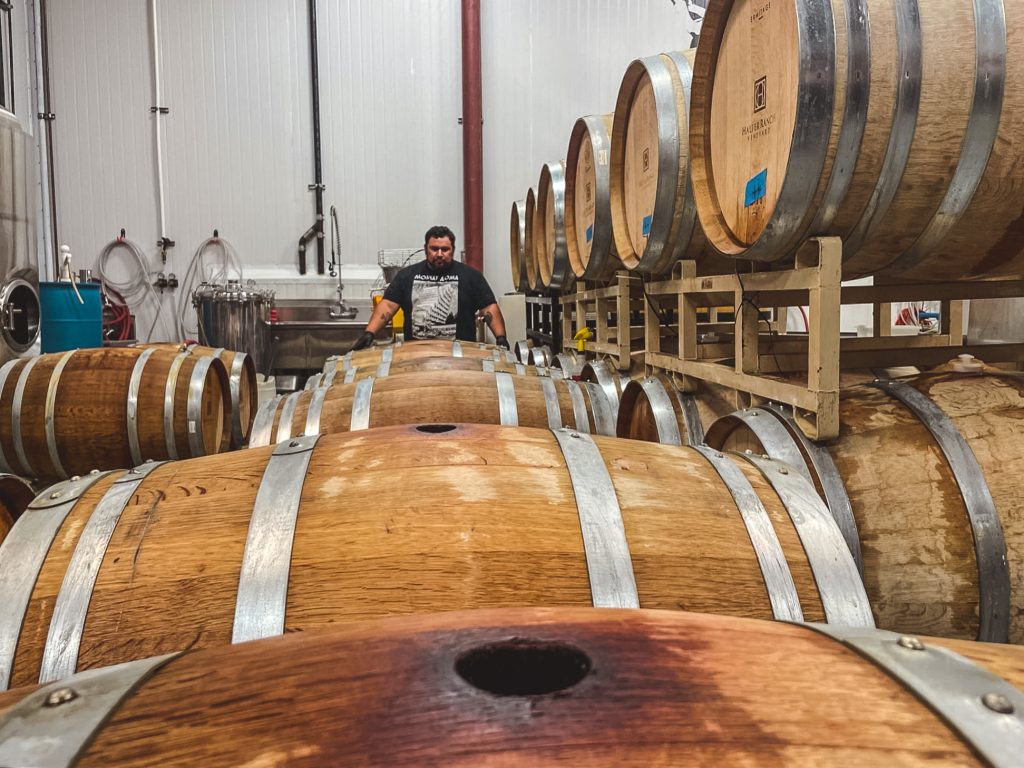
As quickly as the announcement was made, plans came together for him to take over Cellador. He was previously the brewery’s Sales Manager and has also worked long hours there in production, distribution, events, and really, he says, just about everything else. “[Kevin and Sara] gave me the opportunity to carry the brand forward, and I’m super excited about it,” Ourieff said recently, speaking at Cellador’s new blendery in a sub-leased auxiliary space at Smog City Brewing in Torrance. And he has plans in place to maintain — and grow — the business.
“We’re in a new space, we’re producing beers, and we’re going to be able to dial in the quality of the products we’re producing. And, we’re going to get into a tap room and make a genuine food program.”
The Beers
In that ethos of being an art project, Cellador always maintained the highest-quality production standard, but the releases were unpredictable. Now, Ourieff hopes to establish more regularity in the beer production schedule, creating predictability for wholesalers and local beer shops that carry their products.
In order to do this, Ouerieff plans to establish a core group of flagship-style beers. That way, consumers will have a better idea of what they can consistently expect. The group will include Chenille, their farmhouse ale made with apple cider must and honey; Saison Du Rosier, their base saison; Tepache, their farmhouse seltzer with pineapple; and Witbier, their orange-forward tart wheat ale.
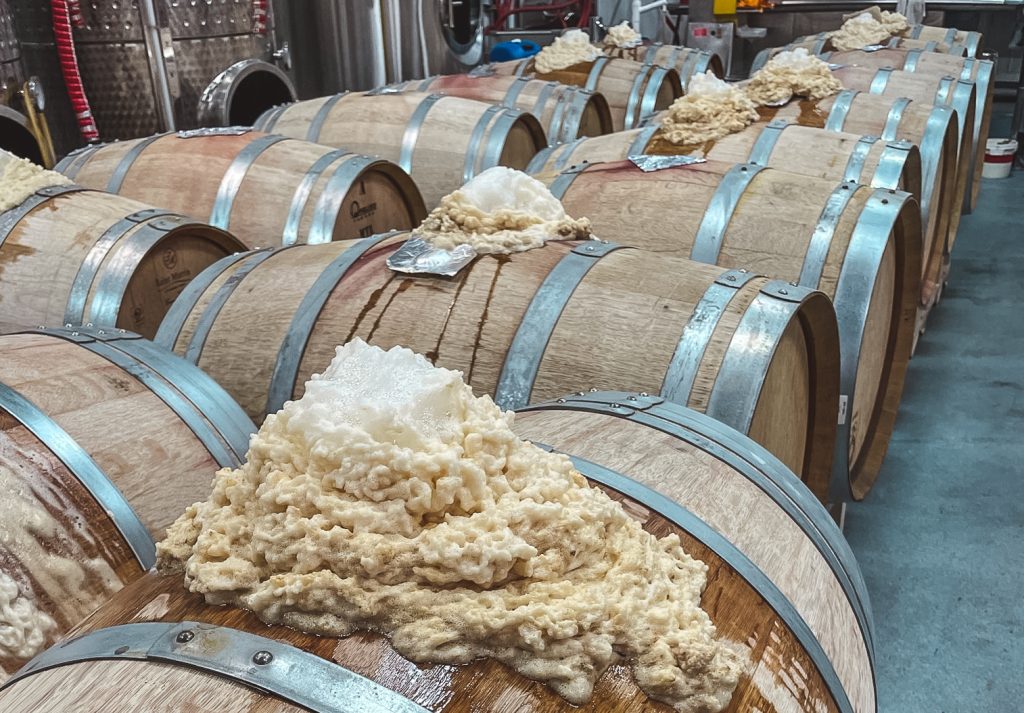
By scaling up the batches of wider production beers, they can also scale down smaller batches of experimental beers, allowing for more iteration. Ourieff has his eyes set on a beer with huitlacoche — a tasty fungus that grows on corn frequently served in high-end Mexican cuisine — using a masa base made in collaboration with Masienda, single-origin masa sourcers based in West LA. He has big plans for grape season, like producing more beers in the style of Deadcrush, Cellador’s beer-wine hybrid, and also plans to showcase the terroir of Southern California in different seasons through foraging. And, of course, they’ll continue working with lots of seasonal orchard fruits — cherries, plums, apricot, peaches, nectarines, etc.
The first release is slated for early May, and will officially kick off Cellador 2.0. The beer? The same as the first release from the original Cellador back in 2016 — ++Good, a dry-hopped farmhouse they’ll make with two different dry-hops, plus a tiny one-off release to celebrate the new iteration of the brewery.
Building A Sustainable Sour Brewery Through Membership
Between filling barrels and experimenting with new recipes, Ourieff is also looking to raise capital via memberships. They just went on sale to the public, and, he says, building a member base is their biggest push right now. “Members sustain the brand and create a foundation of financial stability,” he said.
“[Having] that patronage lets us build and extrapolate — kind of have the room to play around,” he added. “We moved into a new space, and we have 100 barrels to fill. All of them are going to be full before we have the opportunity to sell any new beers. So the membership is an investment in the future, by helping us shoulder the load of a huge investment in building inventory of a product that takes a long time to age. That influx of cash around membership sales will help make [the business] sustainable.”
Eyeing A Summer 2023 Taproom Opening
Cellador’s new taproom will have some major changes from the previous version, which was a small storefront at their North Hills production facility.
The new location will be a standalone restaurant, and much more central to most of LA County. They’ve looked at restaurant locations in Culver City, Echo Park, and Highland Park, and have entered negotiations on a space.
It will also be a “full-blown restaurant,” Alex, who was a cheesemonger before joining Cellador, told me. “We’re not gonna have, like, pre-wrapped sandwiches.” The fully-operational kitchen will also allow them to acquire city permitting necessary to establish a wine program, and offer guest taps from other breweries, as well.
Since they’re only looking at spaces that already have permitting in place, the taproom could open pretty quickly, in theory. Though he hesitated to commit until they’ve locked in a space, Alex thinks they are in line for a late-summer opening.
Beer Production
Major changes have come to Cellador’s production side, after shutting down all operations in North Hills in December. They’ve moved all equipment to Torrance and now operate out of Smog City, for one. The wort – the base from which all Cellador Ales beers are blended – was previously made by Macleod Ales, but will now be produced on-site by Smog City.
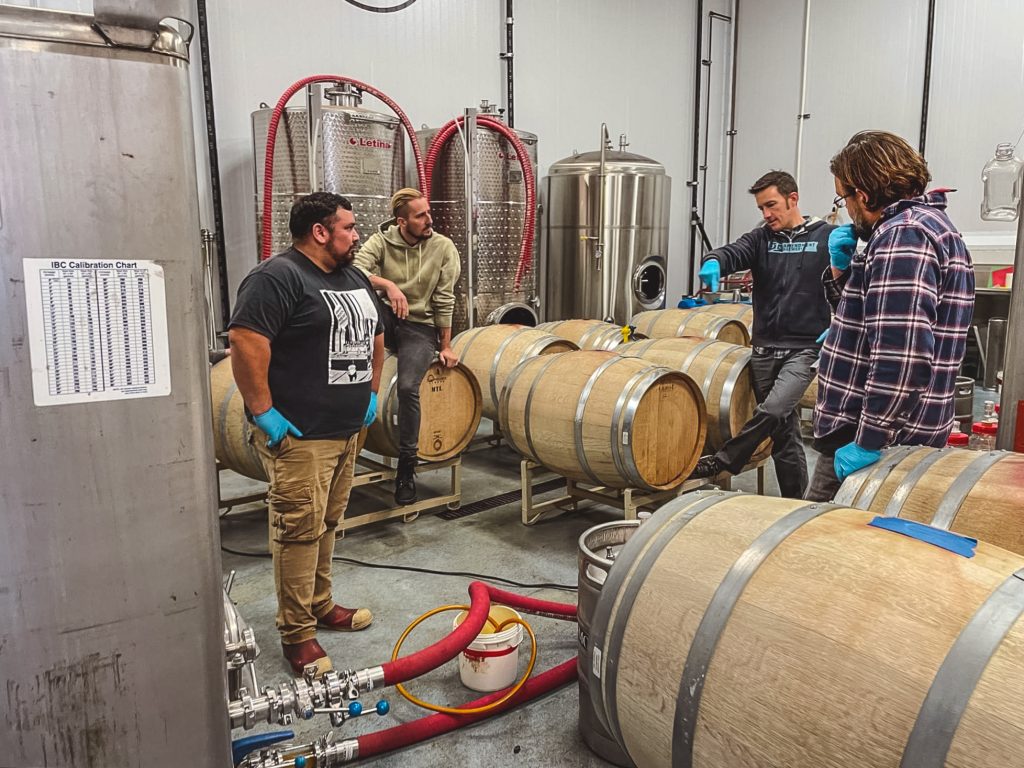
“When we were looking for a new place to live,” Ourieff said of the new barreling facility, “[Smog City] was a great situation. It let us get around what could have been years of permitting and stuff. It’s ideal.” He added that Jonathon and Laurie Porter, Smog City’s co-founders, have been a massive resource for their knowledge about permits and production.
Entering into this alternating proprietorship with Smog City has given Cellador a lot of new resources, including a cold box and a large warehouse for barrels. This is a big change from what Ourieff says was functionally similar to a homebrew setup in the previous location.
“We produced beers that I’m really proud of in the old space,” Alex said. “But… we didn’t have any temperature control. In the winter, everything was cold. In the summer, everything was hot. This will definitely help us produce a higher quality of beer more consistently.”
They also have on-site access to the brewery producing the wort – Smog City’s main brewery is across the parking lot from the space where Cellador operates. Before, Cellador’s brewers could only feed cultures, essentially the blood that allows mixed-fermentation beer to live, whenever there was a new batch of wort. Now, they can walk across the parking lot for a keg.
Access to wort production will allow for much more experimentation while brewing. Ourieff and the team can now experiment with all kinds of technical changes, like hop balance and pitching, bacterial development, and using both hopped and unhopped wort, allowing them to tinker with their beers in ways they never could before.
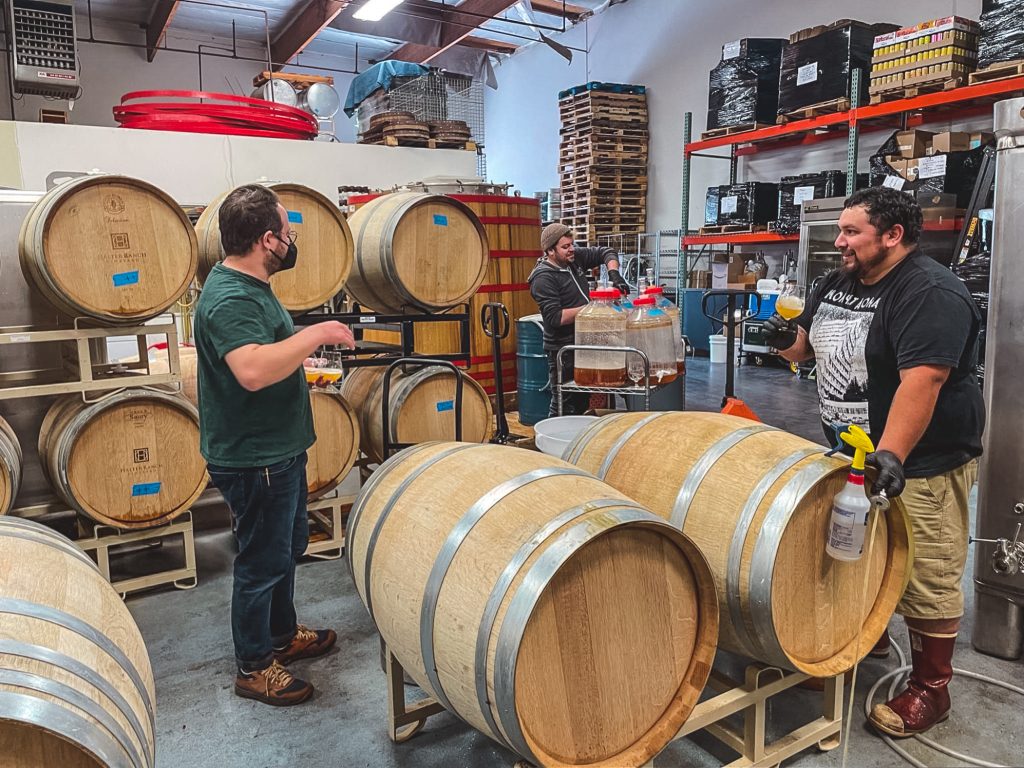
Balancing Economics And Passion
It’s a difficult time for the beer industry on the whole, and particularly barrel specialists. The margins are slim in barrel-aged beers, which take a minimum of months to produce, compared to the weeks that traditional beers generally take.
Some barrel breweries, like Dry River in Boyle Heights, have closed for good. Berkeley’s The Rare Barrel, one of the most acclaimed blenderies in the country, was facing closure before being purchased by Cellarmaker. Even Firestone Walker, California’s second-largest craft brewer, has notably scaled back its barrel program, the future of which is in flux after eliminating its Master Blender position last year.
“It’s a shitty business,” Ourieff admitted. “It’s really hard to make any money. And so to the extent that [sour breweries] continue to exist, it’s by virtue of owners who are passionate about them, not owners who are motivated by profitability. You have to do both: you have to create a balance that becomes sustainable. Andhopefully, I can take home enough of a paycheck to pay my rent. But if it’s just [for the] money, you would never do this.”
But it’s not just a hope and prayer that will keep Cellador open, and Ourieff knows that. The forthcoming taproom will go a long way to establishing long-term economic viability.
“My theory of how this becomes a successful business goes beyond just being like, hunkered down and trying to cut costs every week. We want to have taprooms. My background is in food. Being able to go direct-to-consumer, and having people that come to us to buy the beer makes a big difference. So I’m under no delusion that we can just have a barrel house and make a bunch of money. It’s going to require pivoting the business in a handful of ways.”
These changes, he says, will help turn this passion project into a profit.
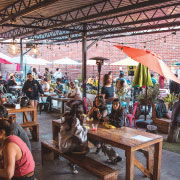



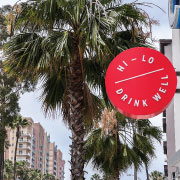
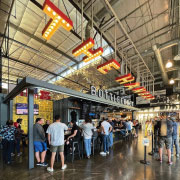
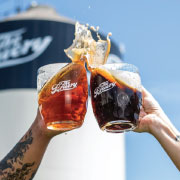
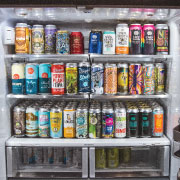
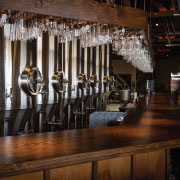
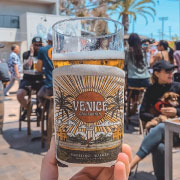
 Brett Keating
Brett Keating